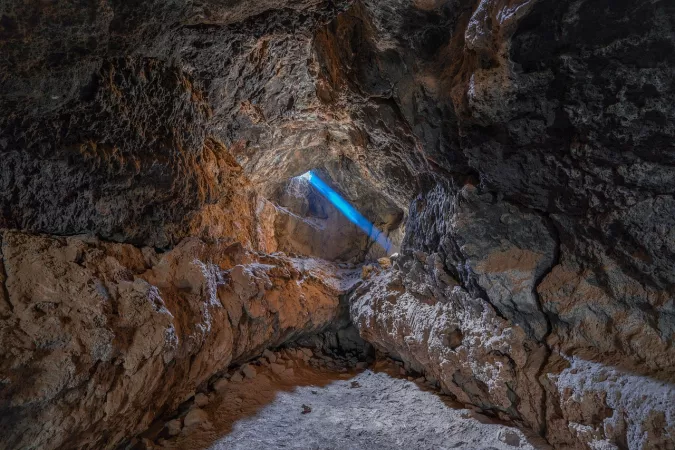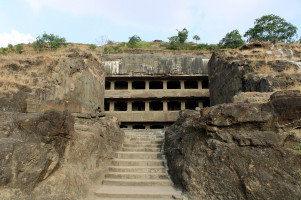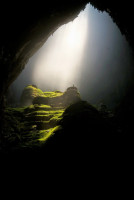
Borra Caves
Duration
1 to 2 Days
1 to 2 Days
Best time to visit
Oct-Mar
Oct-Mar
Theme
Hill Station, Adventure, Heritage
Hill Station, Adventure, Heritage
Borra Caves Travel Guide
Borra Caves, located in the Araku Valley of the Ananthagiri Hills in Andhra Pradesh, India, is a fascinating destination known for its historical and geological significance. These limestone caves are believed to be millions of years old and showcase stunning stalactite and stalagmite formations. The caves hold great cultural importance for the local tribes and are a popular tourist attraction in the region.Top Attractions in Borra Caves
- Stunning Stalactite and Stalagmite Formations
- Lord Shiva Temple Inside the Caves
- Araku Valley Scenic Train Ride
- Tribal Museum
- Ananthagiri Hills Trekking
Borra Caves is Famous for
The Borra Caves are most famous for their ancient limestone formations and the cultural significance they hold for the local tribes.Top Attractions in Borra Caves
- Exploring the intricate limestone formations
- Visiting the Lord Shiva temple inside the caves
- Experiencing the scenic train ride to Araku Valley
- Learning about the tribal culture at the museum
- Trekking in the picturesque Ananthagiri Hills
What's Great about Travelling to Borra Caves?
- Opportunity to witness ancient geological formations
- Rich cultural experience with the local tribes
- Scenic beauty of the Araku Valley
What's Not So Great about Travelling Borra Caves?
- Limited accommodation options in the remote area
- Can be crowded with tourists during peak seasons
- May not be suitable for those with mobility issues due to cave exploration
Travel Tips for Borra Caves
- Check for cave timings and entry fees before visiting
- Wear comfortable shoes for cave exploration
- Respect the local tribal culture and traditions
Important Borra Caves trip information
- Ideal Duration: 1-2 days
- Best Time to Visit: October to March
- Nearby Airports and Railway Stations: Visakhapatnam Airport and Araku Railway Station
Per Person
10,000
*EXCLUDING APPLICABLE TAXES 4.9 Ratings
( 200 Reviews )
( 200 Reviews )
Per Person
6,500
*EXCLUDING APPLICABLE TAXES 4.9 Ratings
( 200 Reviews )
( 200 Reviews )
FAQ's on Borra Caves
Q1: What is the best time to visit Borra Caves?
The best time to visit Borra Caves is during the winter months from November to February when the weather is pleasant and ideal for exploring the caves. It is also advisable to avoid the monsoon season from June to September due to heavy rainfall in the region. Tourist seasons are typically busiest during the winter months, so plan your visit accordingly to enjoy the caves without large crowds.
Q2: Do I need a visa to travel to Borra Caves?
Travelers to Borra Caves do not require a visa specifically for the caves as they are located in India. However, if you are visiting from another country, you may need a valid Indian tourist visa. Make sure to check the visa requirements based on your nationality and plan accordingly.
Q3: What are the must-visit attractions in Borra Caves?
The top attractions in Borra Caves include the stunning natural rock formations, the Shiv Parvathi statue, the Lord Shiva Lingam, and the picturesque surroundings of the caves. Don't miss the Araku Valley nearby, known for its scenic beauty and coffee plantations, and the Katiki Waterfalls for a refreshing experience. Exploring the tribal villages and local markets can also provide a unique cultural experience.
Q4: Is Borra Caves a safe place to travel?
Borra Caves is generally a safe destination for travelers. However, it is essential to take precautions like staying on designated paths within the caves, avoiding slippery areas, and following any safety instructions given by guides. While the area is considered safe, it's always a good idea to be mindful of your belongings and surroundings to ensure a pleasant visit.
Q5: What is the local currency in Borra Caves and can I use credit cards?
The local currency in Borra Caves is the Indian Rupee (INR). While credit cards are not widely accepted in and around the caves, it's recommended to carry sufficient cash for any purchases or expenses. There are ATMs available in nearby towns like Araku Valley where you can withdraw cash if needed.
Q6: What is the local cuisine like in Borra Caves?
The local cuisine in Borra Caves offers a mix of Andhra and tribal flavors. Try traditional dishes like bamboo chicken, Araku coffee, and various types of millet-based preparations. Vegetarian options like dosas, vadas, and chutneys are also popular. Visitors with dietary restrictions can find options like steamed rice, lentils, and fresh fruits. Don't miss the opportunity to savor the local tribal cuisine for a unique gastronomic experience.
Q7: What transportation options are available in Borra Caves?
Transportation options in Borra Caves include buses, taxis, and rental cars. Public buses are available from Visakhapatnam to Araku Valley, from where you can hire a taxi to reach Borra Caves. Taxis are a convenient way to travel around the area, and car rentals are also an option for those who prefer self-driving. It's advisable to book transportation in advance, especially during peak tourist seasons, to ensure a smooth journey.
Q8: Are there any cultural norms or etiquette I should be aware of when visiting Borra Caves?
When visiting Borra Caves, it's essential to respect the local customs and traditions of the tribal communities in the region. Avoid touching or damaging any rock formations inside the caves, as they are considered sacred by the locals. Dress modestly and be mindful of your behavior to show respect for the cultural heritage of the area. Greet people with a polite "Namaste" and ask for permission before taking photographs of individuals or religious sites. Embracing the local customs will enhance your experience and create a positive interaction with the community.
Q9: I am a travel agent. How can I buy travel leads of Borra Caves?
Register yourself as a travel agent at agents.tripclap.com and then you can buy travel leads to Borra Caves once your account is approved. For more details contact our support team at +91-8069186564 or support@tripclap.com


